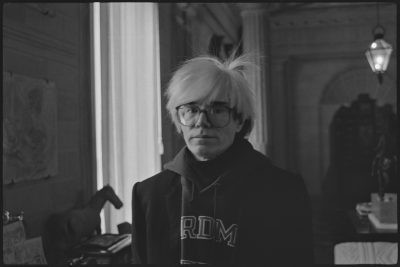'Metropolitan Detention Center' by Hobo Matt is licensed with CC BY-NC-SA 2.0
A look at R. Kelly’s new home: A prison in Brooklyn
The disgraced R&B star has been transferred to the notorious Metropolitan Detention Center, which has a tarnished record of its own
This week, federal officials moved former R&B superstar R. Kelly from a detention center in his hometown of Chicago to the Metropolitan Detention Center (MDC) in Sunset Park Brooklyn. Kelly, who in 2010 was named the top R&B artist of the last 25 years by Billboard, has, over the last two decades, been accused of sexual assault, abuse of a minor, over 30 counts of making child pornography, sex traffiking, racketeering, attempting to intimidate alleged victims, and obstruction of justice.
Kelly’s destroyed reputation rivals that of his new home as the MDC has garnered increasing scrutiny and drawn protests since early 2019 when 1,6000 prisoners were left without heat or electricity for a week in the dead of winter. Protestors returned in the summer of 2020, when Jamel Floyd, a 35 year old prisoner, died after being pepper sprayed by a guard, and in December of the same year in response to skyrocketing Covid cases in the prison.
As Kelly awaits trial on charges of aggravated criminal sexual abuse, sex traffiking, prostitution, and racketeering he will have to endure conditions described as “horrific” by detainees, lawyers, and inmate advocates. The most prominent critic of these conditions is current inmate Ghislaine Maxwell who is awaiting trial on allegations that she procured and trafficked underage girls to be abused and raped by multi-millionaire Jeffery Epstein and his friends.
Maxwell’s lawyers have said that their client is living in a cell with a constant “pervasive stench of sewage” and with “vermin droppings falling from the air vents.” The “jaw-droppingly appalling conditions,” in which Maxwell is living are “inhuman, cruel, and degrading,” and her family has argued that they are in breach the United Nations’ standard minimum rules for the treatment of prisoners. These descriptions align with other testimonies given by detainees and lawyers who have spent time in the 30-year-old prison and reflect the concerns of activists and protestors who previously demonstrated outside of the MDC in 2019 and 2020.
In late January and early February of 2019, as temperatures in Brooklyn fell to near zero degrees, the MDC lost power and heat when units that draw water up from the boilers froze and an electrical panel caught fire. Prisoners sat in their dark freezing cells for a week with little hot water, few hot meals, no phone access and no lawyer visits. Many of the 1,600 residents living in the MDC at the time had not been convicted of crimes and were awaiting their trials after not making bail. Ghislaine Maxwell has been denied bail on five separate occasions and R. Kelly was denied bail in early 2019.
While prisoners sat in dark and freezing cells their family members, local politicians, and hundreds of other New Yorkers protested outside of the prison attempting to get heat and power restored and to send messages to the inmates inside. At one point some protestors tried to break into the prison shouting “Heat is a human right!” with one crying out “That’s my son! You got to let me go!” before being repelled by prison guards employing pepper spray. At the time, the federal Bureau of Prisons, which runs the MDC, emailed the New York Times insisting that “Cells have heat and hot water, there is lighting in the common areas and inmates are receiving hot meals.”
Inmates contested this account and protested the lack of heat and light as well by taking part in hunger strikes, barricading their cell doors, and engaging in small acts of resistance like eating in forbidden areas. The Intercept reported that guards and prison officials responded to these protests by repeatedly pepper spraying inmates, throwing offenders in solitary confinement, withholding meals from certain prisoners, and shutting off toilets in the cells of inmates on hunger strikes in order to flood the freezing and dark cells with feces and sewage. A spokesperson for the The Bureau of Prisons, told The Intercept that, “Allegations of misconduct are thoroughly investigated and appropriate action is taken if such allegations are proven true.”
Conditions have only depreciated since the beginning of the Covid-19 pandemic. In a 15-page ruling that approved the compassionate release of an inmate suffering from HIV and obesity, federal judge Katherine Polk Failla called conditions at the MDC “brutal” referencing “frequent lockdowns for lengthy periods of time, no programs, extremely limited recreation, [and] no social visits.” This release came 10 months after Jamel Floyd died from being pepper sprayed in the face by a prison guard. His death, which occurred on June 3rd, 2020 resulted in more protests at the MDC during which Congresswoman Nydia Velazquez told the crowd of demonstrators that the MDC “represents what is wrong in America.”
R. Kelly, born Robert Sylvester Kelly, enters the facility after his own fall from a peak of winning three Grammys in 1998 and charting multiple top-ten hits. Since then, as accusations of sexual misconduct flooded in, Kelly lost his record deal with RCA, had his entire music catalog removed from Spotify, and watched as his passionate plea of innocence on CBS this Morning became the laughingstock of the internet.
Other notable inmates who have done their time at MDC include rapper 6ix9ine, securities fraudster Martin Shkreli and NXIVM founder Keith Raniere, among others.
Kelly, who has denied all allegations and plead not guilty, will appear in court on August 9.
You might also like 


























